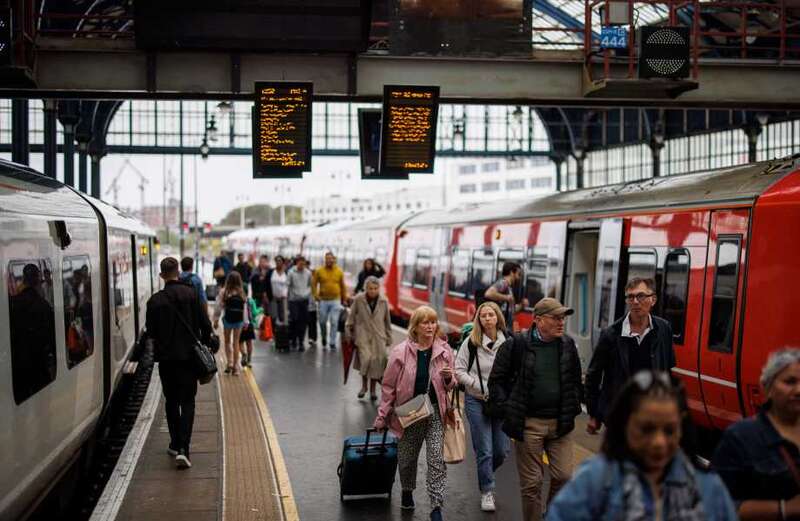TRAIN drivers will stage a series of fresh strikes and an overtime ban from the end of the month.
The latest walkouts are part of a long running dispute over pay and will cause more travel chaos for passengers.

Fully qualified train drivers can earn at least £65,000 for a typical four-day week, plus lucrative overtime payments.
Members of Aslef will take part in a rolling programme of one-day strikes from January 30 to February 5 and ban overtime for nine days from January 29.
In the past, train companies involved have struggled to provide a service when the drivers are on strike.
 Spectacular New Year fireworks light up London sky as huge crowds celebrate across UK for first time in three years
Spectacular New Year fireworks light up London sky as huge crowds celebrate across UK for first time in three years
Some have run a limited timetable, using managers to drive trains.
Operators not involved in the industrial action, such as ScotRail and Transport for Wales, should run a service as normal.
No strike action is planned for February 1 or February 4.
In April 2023, Aslef's executive committee rejected 4 per cent pay rises for two years in a row, on condition that they would accept industry-wide changes to driver training, and negotiate changes to work patterns at individual operators.
There have been no formal talks since.
The union said it wanted to put pressure on "intransigent" train operating companies as well as the "tone-deaf Tory government" to give train drivers their first pay rise in almost five years.
Aslef general secretary Mick Whelan said: "We have given the Government every opportunity to come to the table but it has now been a year since we had any contact from the Department for Transport. It's clear they do not want to resolve this dispute.
"Many of our members have not had a single penny increase to their pay for half a decade, during which time inflation has soared and, with it, the cost of living.
"Train drivers didn't even ask for an increase during the Covid-19 pandemic when we worked throughout lockdown as key workers, risking our lives, to move goods around the country and to enable NHS and other workers to get to work.
"The Tory government has now tried its old trick of changing the rules. When they couldn't win they brought in minimum service levels legislation.
 Hospitals run out of oxygen and mortuaries full amid NHS chaos
Hospitals run out of oxygen and mortuaries full amid NHS chaos
"But this new law, as we told officials during the consultation period, won't ease industrial strife. It will just make it worse.
"There is, frankly, no excuse for this nonsense. The Government and train operating companies (TOCs) should come to the table with a realistic offer so we can end this dispute and work together to ensure the future of our railways."
The strikes, which will cripple train services, mainly across England, could be the first test of new regulations aimed at ensuring a minimum level of service during strikes, set at 40 per cent in the transport sector.
Industrial action has cost the rail industry £716million since the feud between unions and operators began, according to the Rail Delivery Group — who also say that taxpayers are still supporting rail with up to an extra £175m a month to make up the 30 per cent shortfall in revenue post Covid.
Members of the RMT union, which represents tens of thousands of other rail workers, accepted a deal in November.
This ended its long-running series of national strikes and gave staff a backdated 5 per cent pay rise for 2022-23.



































